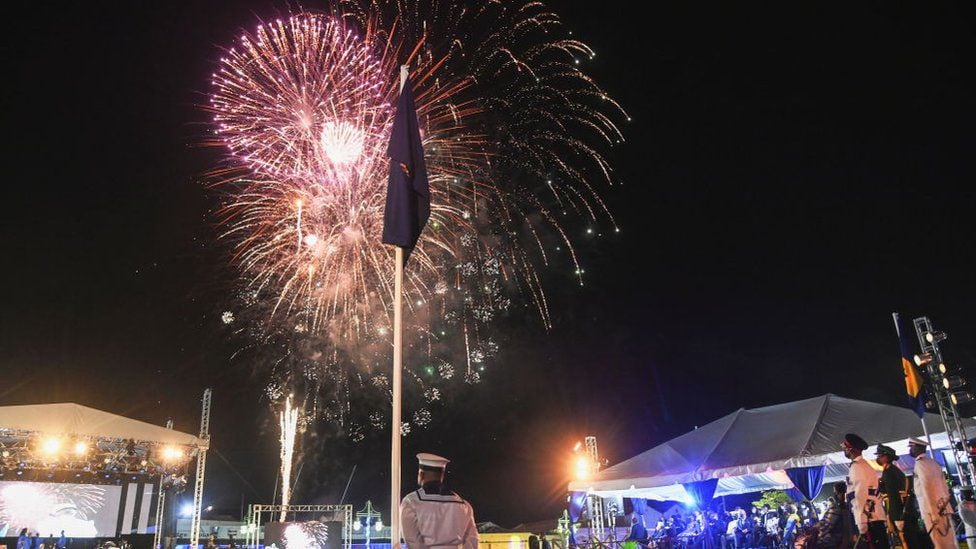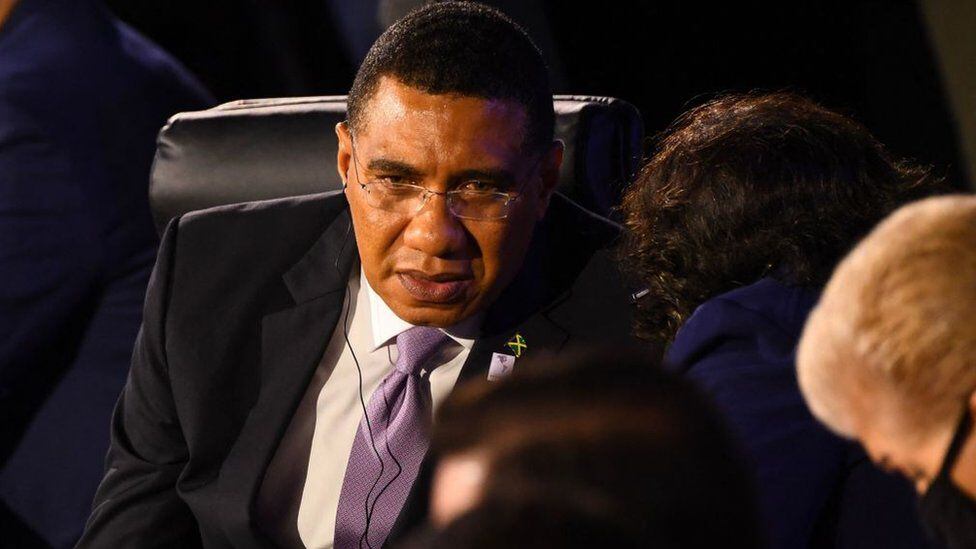This Saturday May 6th, King Charles III He is crowned in an act that officially closes his assumption of the throne cycle, after the death of his mother Elizabeth II on September 8, 2022. Since that date, the former Prince of Wales exercises the functions of monarch of the United Kingdom and sovereign of another 14 kingdoms of the Commonwealth (Mancomunidad de Naciones, in Spanish).
LOOK: Republic, the group that wants to tarnish the coronation of Carlos III (and that represents more and more young Britons)
This means that Carlos III is recognized as head of state in territories located on three different continents: Europe, America and Oceania.
But let us explain step by step his role in each case and, above all, what future awaits his position.
THE PLACE OF THE KING
To begin with, the United Kingdom is a sovereign state made up of four countries: England, Wales, Scotland, and Northern Ireland. The head of state is King Carlos III and the head of government is the prime minister, a position currently held by the conservative Rishi Sunak.
On the other hand is the Commonwealth, a grouping of 56 countries that maintain historical ties to the British crown. According to its website, some 2.5 billion people live in a Commonwealth country, which means that they are home to almost a third of the world’s population.
Since the creation of the current format, in 1949, it has been led by three monarchs: Jorge VI, Isabel II and now Carlos III. Unlike a noble title, leading the Commonwealth is not a hereditary position, so it was necessary that, in 2018, the heads of State and Government that make it up accept Carlos as successor to Elizabeth II.
Although the member countries of the Commonwealth are former colonies of the British Empire, being part of the Commonwealth does not imply that they must submit to the British crown or recognize the king as their head of state.
For this reason, despite having 56 members, only 14 of them recognize Carlos III in that position.
THE SUN NEVER SETS
Remembering a phrase used by the Spanish Empire in the 16th century and by the British in the 19th century, we can say that currently the sun never sets on the territories of Carlos III.
The king is considered head of state in:
During the reign of Elizabeth II, the longest in the history of British royalty, the list of countries that recognized the monarch as their head of state was cut in half, after 13 countries decided to become republics.
THE CASE BARBADOS
On November 30, 2021, the same day it celebrated the 55th anniversary of its independence, the Caribbean island of Barbados officially became a republic.
In the place of Queen Elizabeth II, lawyer and judge Sandra Mason became the first female president of Barbados. Among the special guests at the ceremony was the then-Prince Charles, a figure who sought to demonstrate that despite officially ending his loyalty to the British throne, they sought to maintain ties of friendship with the United Kingdom.
Barbados’ republican path was long. First he spent decades replacing the country’s colonial memories with patriotic sentiment. Later, in 2005, he left the London Privy Council, a private council that advises the British crown.
A couple of years later, he proposed submitting the population to a Republican referendum, but the initiative lost support before preparations for the popular vote even began.
In 2015, an attempt was made to change the country’s status through a legislative transition, but the lack of votes in the House of Assembly threw the plan to the ground.
Only in 2020, during the government of Prime Minister Mia Mottley, was it possible to gather the necessary votes in the two legislative chambers to make the transition.

OTHER COUNTRIES ON THE WAY
Barbados thus followed the path followed by India, South Africa, Nigeria, Malaysia and Singapore at the time. A path that, most likely, other of the 14 nations that still recognize the British king as their head of state are willing to travel in the not so distant future.
In Jamaica, for example, republican voices are resonating with increasing force. “It is inevitable that we will move towards a republic”, assured Andrew Holness, Jamaican Prime Minister, last year during the visit of Prince William of England and his wife Princess Catherine.
At the beginning of March, the Constitutional Reform Committee was formed, in charge of advising and supervising parliamentarians on proposals for constitutional reforms that later -most likely in 2024- will be submitted to a popular referendum seeking to convert the country into a republic.
“Once we have abolished the constitutional monarchy from the composition of our form of government, it will be replaced by the Republic of Jamaica”, Said the Minister of Legal and Constitutional Affairs, Marlene Malahoo Forte, in this regard.
If so, the figure of the current governor general will be replaced by that of non-executive president. 56% of citizens agree with this decision, according to a survey carried out in August 2022 by the local newspaper Gleaner.

Further north, in Canada, 60% of those surveyed by the Angus Reid Institute expressed their rejection of Charles III being recognized as King of Canada, while 61% considered that the country should shed its colonial bond.
Despite this, various local governments, such as Ottawa, plan to carry out different activities to celebrate the coronation of Carlos III.
On the other side of the planet, in Australia, the death of Elizabeth II also brought with it new republican winds. While funeral ceremonies for the monarch were taking place in London, massive demonstrations were held in cities like Sydney, Melbourne and Canberra calling for the abolition of the monarchy in the country.
Prime Minister Anthony Albanese has already expressed the possibility of the country going to a referendum on British crown membership, while Assistant Minister for the Republic Matt Thistlethwaite told TIME magazine: “Se are a nation of about 25 million people. We make our own decisions. We have our own form of government, our own culture and identity, and I think Australians are ready for the conversation about reflecting that in our constitution and appointing one of our own as our head of state.”.
Source: Elcomercio
I am Jack Morton and I work in 24 News Recorder. I mostly cover world news and I have also authored 24 news recorder. I find this work highly interesting and it allows me to keep up with current events happening around the world.

:quality(75)/cloudfront-us-east-1.images.arcpublishing.com/elcomercio/VYHGM7NXCJCFBAVM6PPESLIYXA.jpg)

:quality(75)/cloudfront-us-east-1.images.arcpublishing.com/elcomercio/C3CFNDY7IJBD7IPRA2MD4YFEMA.jpg)
:quality(75)/cloudfront-us-east-1.images.arcpublishing.com/elcomercio/M2LCM4QUT5ELPCXJGGDSPRJABY.jpg)
:quality(75)/cloudfront-us-east-1.images.arcpublishing.com/elcomercio/A437UMMJYJE2XMZH4CUVURG3QI.jpg)

